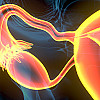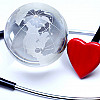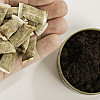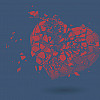Recent Blog Articles

Lead poisoning: What parents should know and do

How does waiting on prostate cancer treatment affect survival?

Does running cause arthritis?

Is alcohol and weight loss surgery a risky combination?

Preventing ovarian cancer: Should women consider removing fallopian tubes?

Healthier planet, healthier people

Is snuff really safer than smoking?

Will miscarriage care remain available?

Considering collagen drinks and supplements?

Does less TV time lower your risk for dementia?
Esophageal Varices
What Is It?
Esophageal varices are swollen veins in the lining of the lower esophagus near the stomach. Gastric varices are swollen veins in the lining of the stomach. Swollen veins in the esophagus or stomach resemble the varicose veins that some people have in their legs. Because the veins in the esophagus are so close to the surface of the esophagus, swollen veins in this location can rupture and cause dangerous bleeding.
Esophageal varices almost always occur in people who have cirrhosis of the liver. Cirrhosis causes scarring of the liver, which slows the flow of blood through the liver. Scarring causes blood to back up in the portal vein, the main vein that delivers blood from the stomach and intestines to the liver. This "back up" causes high blood pressure in the portal vein and other nearby veins. This is called portal hypertension.
To continue reading this article, you must log in.
Subscribe to Harvard Health Online for immediate access to health news and information from Harvard Medical School.
- Research health conditions
- Check your symptoms
- Prepare for a doctor's visit or test
- Find the best treatments and procedures for you
- Explore options for better nutrition and exercise
I'd like to receive access to Harvard Health Online for only $4.99 a month.
Sign Me UpAlready a member? Login ».
Disclaimer:
As a service to our readers, Harvard Health Publishing provides access to our library of archived content. Please note the date of last review or update on all articles.
No content on this site, regardless of date, should ever be used as a substitute for direct medical advice from your doctor or other qualified clinician.
Free Healthbeat Signup
Get the latest in health news delivered to your inbox!
